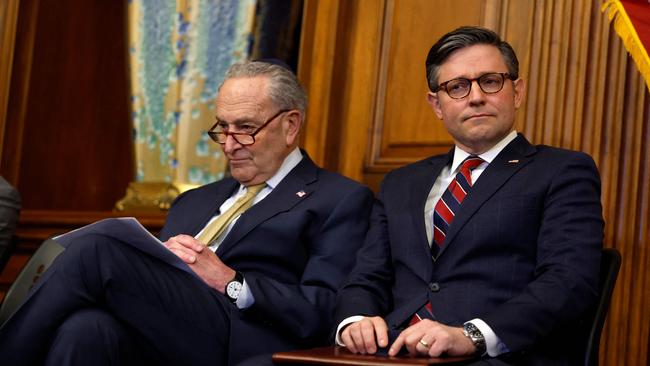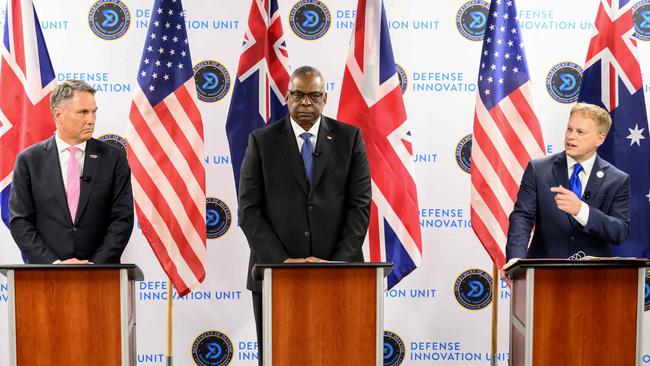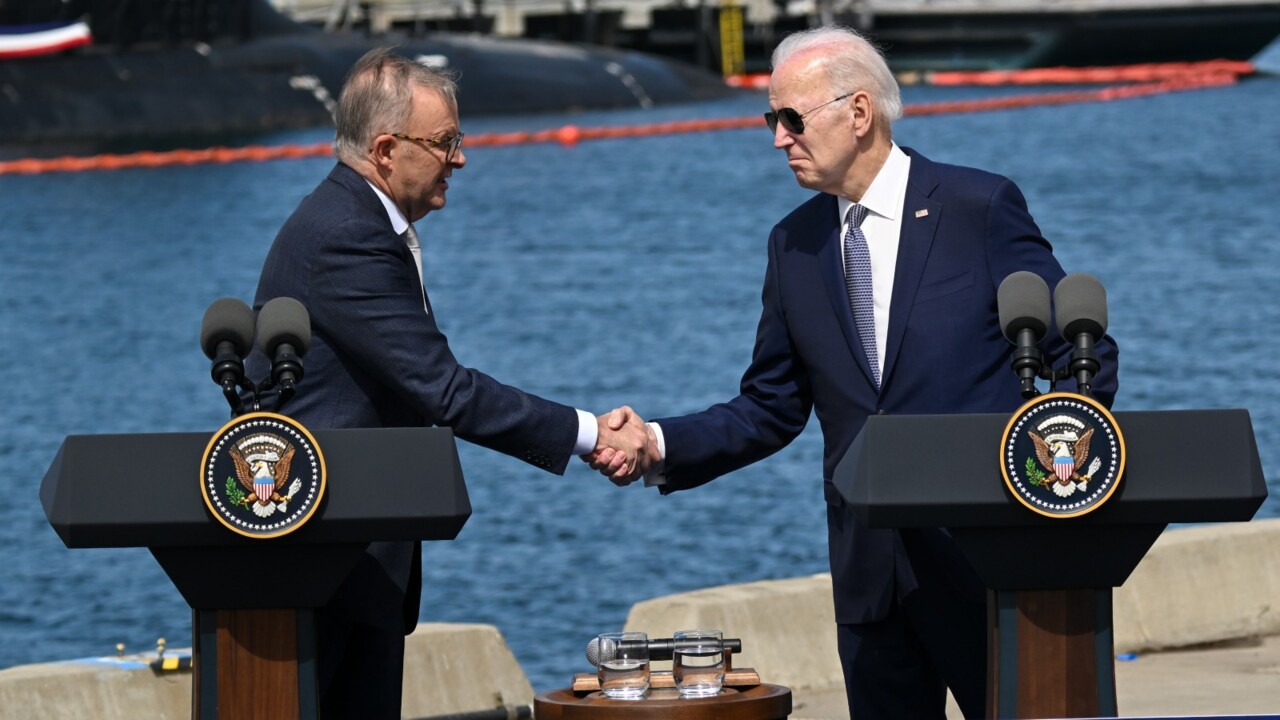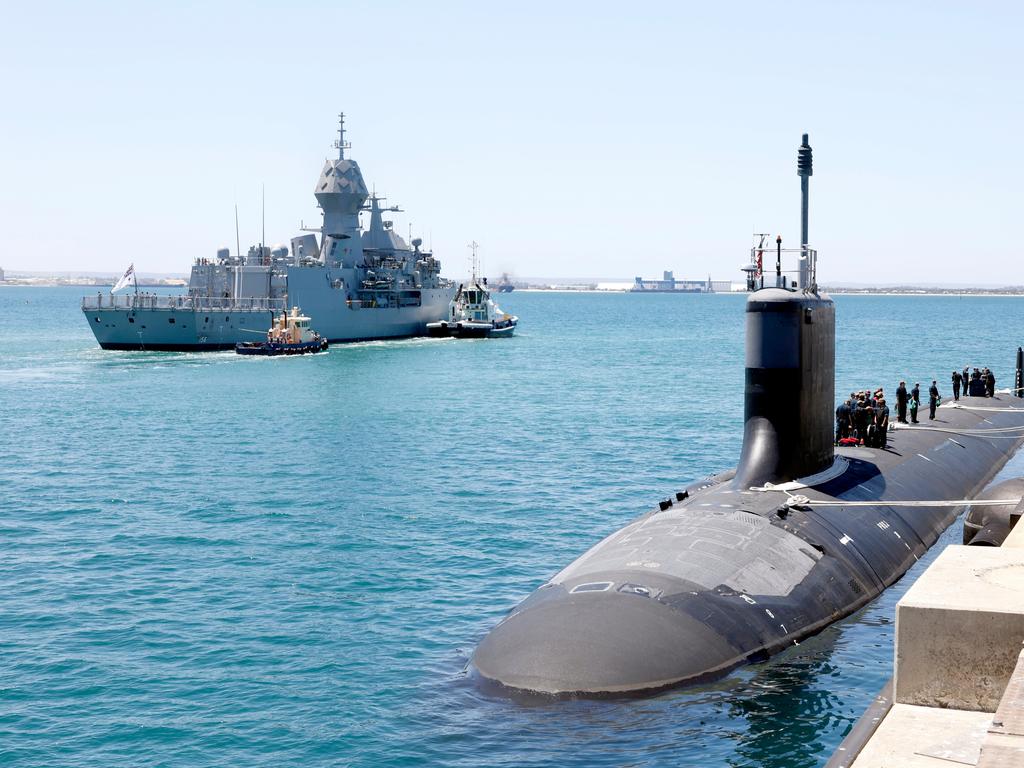US Senate gives green light to transfer of AUKUS submarines to Australia
The $1351bn Defence Authorisation bill will facilitate the transfer of nuclear-powered submarines and other advanced defence technology to Australia from the 2030s.

The Senate has heard the AUKUS security pact was a “game changing” part of US efforts to contain China in the Indo-Pacific, as it passed critical defence legislation that will enable the transfer of nuclear powered submarines and other advanced technology to Australia from the 2030s.
More than 80 senators of the powerful 100-seat chamber had voted in favour of the US$886 billion (AUD $1351bn) Defence Authorisation bill on Wednesday night (Thursday AEDT), paving the way for it to become law by the end of the week after facing a likely successful vote in the House of Representatives tomorrow.

In his short remarks to the Senate floor Democrat majority leader Chuck Schumer said the AUKUS pact was a “game changer” that would “critically approve president Biden’s trilateral US, UK and Australian nuclear submarine agreement”.
“It will create a new fleet of nuclear-powered submarines [for Australia] to counter the Chinese Communist Party’s threat and influence in the Pacific,” he added.
“The bill will give our service members the pay raise they deserve, it will strengthen our resources in the Indo Pacific to deter aggression by the Chinese government and give resources to the military in Taiwan”.

After months of wrangling on Capitol Hill, the House of Representatives and the Senate and their respective Republican and Democrat majorities last week agreed to a final text that would remove legal impediments that would have thwarted the transfer of submarines and other advanced military technology to Australia.
Republican senators had also held up efforts in July to operationalise AUKUS, demanding the White House provide additional funding for the US submarine industrial base, which has struggled to meet the US navy’s own needs.
Passage of the NDAA was delayed into the night by a group of mainly Republican senators who wanted to strip out an extension to the Foreign Intelligence Surveillance Act, which gives the US intelligence agencies scope to spy in Americans’ emails, texts and phone calls without probable cause of a crime.
“I’m a “hell no” on reauthorization of the FISA 702 program that allows warrantless surveillance of Americans,” said Republican congressman Thomas Massie on social media.
The bill as passed included scope for the training of Australian defence personnel and set up the acceptance of a US$3 billion contribution Australia has promised the US to help expand US domestic submarine production as part of the AUKUS agreement.

After months of wrangling on Capitol Hill, the House of Representatives and the Senate and their respective Republican and Democrat majorities have agreed to remove legal impediments that would have thwarted the transfer of submarines and other advanced military technology.
According to comments made last month by US Vice Admiral William Houston, the US navy envisages the transfer of two Virginia class submarines from existing US inventory, and a third directly from the production line, would begin in 2032.
A group of hard line Republicans were leading a charge to veto the bill when it faces the House floor tomorrow, arguing the final version, a product of negotiation between the leadership of the two major parties, had given away too much to the Democrats, including providing funding for abortions and diversity equity and inclusion jobs in the military.
“The swamp is trying to pass a defence bill that rubberstamps all of Biden’s most radical policies UNDERMINING our military’s focus!” said Texas congressman Chip Ro, one of the leader’s of the holdout group.







